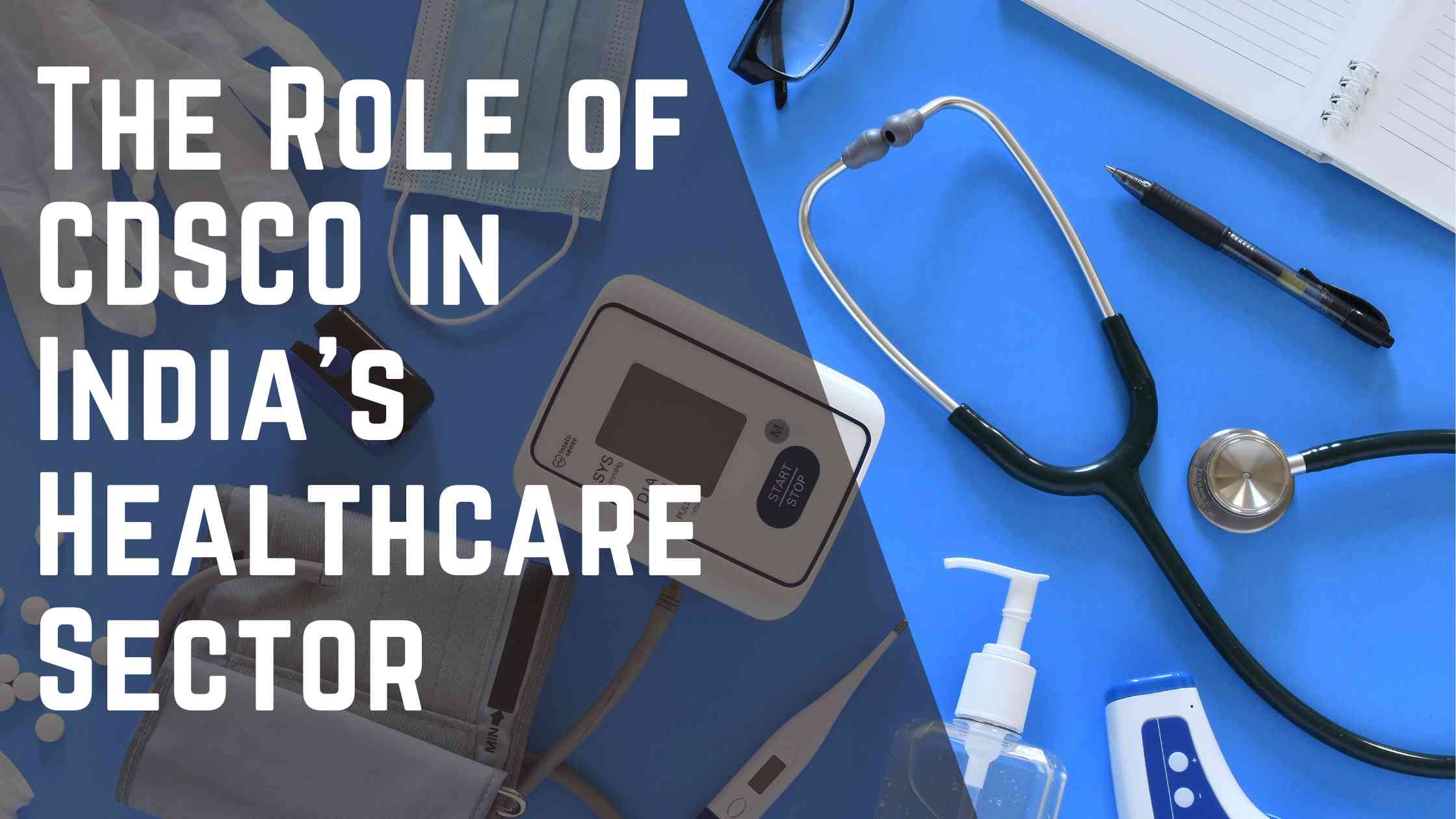India’s healthcare sector is rapidly evolving, with advancements in medical technology, pharmaceuticals, and healthcare delivery systems. Central to maintaining the quality and safety of healthcare products in India is the Central Drugs Standard Control Organization (CDSCO). This regulatory body plays a crucial role in ensuring that the drugs, medical devices, and cosmetics available in the Indian market meet the required standards of safety, efficacy, and quality. In this blog, we will explore the role of CDSCO in India’s healthcare sector, highlighting its responsibilities, functions, impact on public health, and the various registration types and processes it oversees.
What is CDSCO?
The Central Drugs Standard Control Organization (CDSCO) is the national regulatory authority of India for drugs and medical devices. It operates under the Ministry of Health and Family Welfare and is headed by the Drugs Controller General of India (DCGI). Established in 1940, CDSCO is responsible for regulating the import, manufacture, distribution, and sale of drugs, medical devices, and cosmetics in India.
Key Responsibilities of CDSCO
CDSCO has a wide range of responsibilities that are crucial to the functioning of India’s healthcare sector. Some of its key responsibilities include:
- Drug Approval and Regulation
- Regulation of Medical Devices
- Clinical Trials Oversight
- Regulation of Cosmetics
- Post-Market Surveillance
- Quality Control and Testing
CDSCO Registration Types and Process
CDSCO oversees various CDSCO registration types and process for drugs, medical devices, and other healthcare products. Understanding these registration processes is essential for manufacturers and importers operating in India.
1. CDSCO Registration for Drugs
CDSCO registration is mandatory for all new drugs before they can be marketed in India. The registration process involves:
- Application Submission: The applicant submits a New Drug Application (NDA) along with relevant data, including preclinical and clinical trial data.
- Evaluation: CDSCO evaluates the safety, efficacy, and quality of the drug through expert committees.
- Approval: Upon satisfactory evaluation, CDSCO grants approval, allowing the drug to be manufactured, imported, or marketed in India.
There are different categories for drug registration, such as new drugs, fixed-dose combinations, and orphan drugs, each with specific requirements.
2. Medical Device Registration Types and Process
Medical device registration types and process with CDSCO is mandatory for all Class A, B, C, and D devices, based on their risk levels:
- Class A: Low-risk devices (e.g., bandages, surgical instruments)
- Class B: Low-to-moderate risk devices (e.g., hypodermic needles)
- Class C: Moderate-to-high risk devices (e.g., bone fixation plates)
- Class D: High-risk devices (e.g., heart valves)
Registration Process:
- Application Submission: Manufacturers or importers must submit an application through the CDSCO portal with required documents, including device master files and risk analysis reports.
- Evaluation: CDSCO reviews the application and may conduct inspections.
- Approval: After satisfactory evaluation, CDSCO grants the registration, allowing the device to be marketed in India.
3. AYUSH License Types and Process
The AYUSH (Ayurveda, Yoga & Naturopathy, Unani, Siddha, and Homeopathy) license is essential for manufacturing or selling AYUSH products. The types and process of AYUSH license registration include:
- Manufacturing License: For manufacturing AYUSH products.
- Retail License: For selling AYUSH products.
- Wholesale License: For wholesale distribution of AYUSH products.
Registration Process:
- Application Submission: Applicants must submit the AYUSH license application with the required documents, such as site plans, product details, and proof of premises.
- Inspection: The licensing authority conducts an inspection of the manufacturing or retail premises.
- Approval: Upon successful inspection, the AYUSH license is granted.
4. Drug License Types and Process
A drug license is mandatory for businesses involved in the manufacture, distribution, or sale of pharmaceutical products in India. The types of drug licenses and process include:
- Manufacturing License: Required for manufacturing drugs or cosmetics.
- Sale License: Divided into retail and wholesale drug licenses.
- Import License: For importing drugs into India.
Registration Process:
- Application Submission: Applicants submit the drug license application through the state FDA portal with documents like layout plans, equipment details, and proof of premises.
- Inspection: The regulatory authority inspects the manufacturing or sales premises.
- Approval: Upon successful inspection and evaluation, the drug license is issued.
CDSCO’s Role in Ensuring Public Health
The primary role of CDSCO is to safeguard public health by ensuring that drugs, medical devices, and cosmetics available in the Indian market are safe, effective, and of high quality. Here are some ways in which CDSCO contributes to public health:
- Ensuring Access to Safe Medicines
- Promoting Innovation in Healthcare
- Supporting the Fight Against Epidemics
- Strengthening Global Health Collaborations
Challenges Faced by CDSCO
Despite its critical role in India’s healthcare sector, CDSCO faces several challenges that impact its effectiveness. Some of these challenges include:
- Resource Constraints
- Counterfeit and Substandard Products
- Keeping Up with Technological Advances
- Regulatory Harmonization
Conclusion
The Central Drugs Standard Control Organization (CDSCO) plays a pivotal role in India’s healthcare sector by regulating drugs, medical devices, and cosmetics to ensure their safety, efficacy, and quality. Through its regulatory activities, CDSCO helps protect public health, promote innovation, and support the fight against public health emergencies. However, the organization must continue to address the challenges it faces to strengthen its regulatory capabilities and keep pace with the evolving healthcare landscape.
In addition to its core responsibilities, CDSCO’s role in administering various registration processes, such as those for drugs, medical devices, AYUSH products, and drug licenses, underscores its importance in maintaining the integrity of India’s healthcare system. By ensuring that high-quality healthcare products are available to the public, CDSCO will continue to play a vital role in improving the health and well-being of millions of people across the country.



